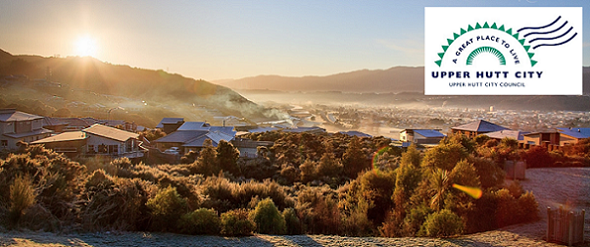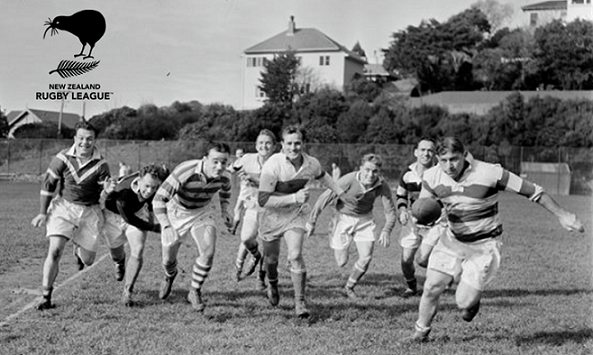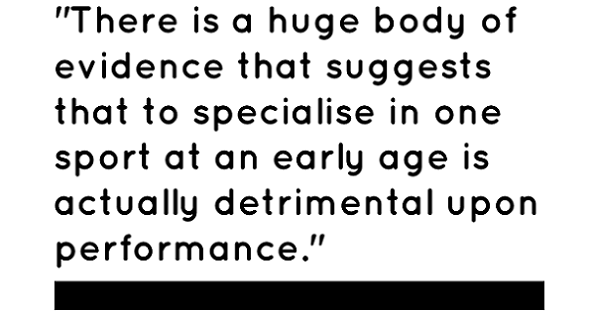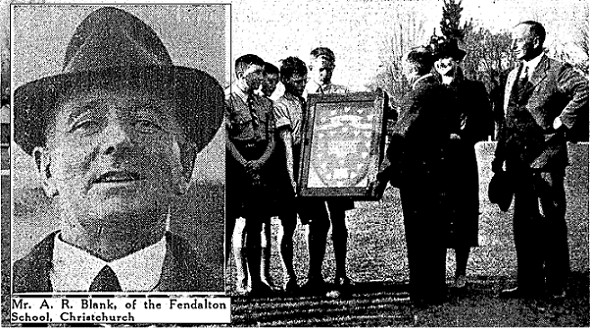Issue 5 : 13 May 2018
Talofa Lava, Kia Orana, Malo E Leilei, Tena Koutou, Hello ...
... and welcome to the latest issue of “For The Love Of The Game”, the official e-zine of the New Zealand Amateur Sport Association Inc. We hope you enjoy reading the articles below.
If you have any feedback on this issue, ideas for future articles, or would like to contact the Editor, please click here. And, you are invited to forward the e-zine to others you know, who may be interested in reading it.
If you are interested in applying for membership of the Association, please click here.
Viewpoint : The Role Of Business In Sport ...
The Chief Executive of Blackrock Inc., one of the world’s largest investment firms, recently wrote, “to prosper over time, every company must not only deliver financial performance, but also show how it makes a positive contribution to society.”
In thinking about New Zealand’s sporting companies, many of which have been established to maximise the commercial opportunities seen in many of our national sporting codes, the relationship between financial returns and social benefits needs to be carefully considered.

While commercial success is based on ticket sales, broadcasting fees, merchandising, player contracts and other financial objectives, how is social success measured? And can professional “clubs” provide the same social benefits as amateur clubs in the community?
A recent Japanese study undertaken by Kozo Tomiyama from Osaka University’s Faculty of Health and Sport Sciences, has shown that amateur sports clubs that aim to enhance social capital in a local community, are effective in enhancing emotional attachment to that community. In other words, community clubs create a bond which establishes and maintains community identity.
(Kozo Tomiyama from Osaka University has studied the importance of community clubs)
Of note, the study suggested that professional sports clubs do not create emotional attachments to local communities, nor create the social capital that community sports clubs can build by engaging volunteers, care-givers and others in common sporting interests.
Where many of our sporting codes have a focus on professionalism and elite performance, perhaps they should (in all cases), also have specific, measurable goals around how they create and grow social capital in communities throughout New Zealand.
As this Association has noted, “we see professional sport, but we live amateur sport”.
Upper Hutt City Council Joins Association ...
The Association welcomes Upper Hutt City Council has a Local Authority member. The Council has joined the Association recognising that local authorities have a major role in supporting amateur sport in their communities.
Upper Hutt boasts 70% of the Wellington region’s parks and reserves, which are widely used by its 41,600 residents. From Silverstream to the Rimutaka Hill summit, the city encompasses an area of 540 square kilometres.

"Orongomai" is the old Maori name of the area where Upper Hutt now stands. It means “the place of Rongomai”, a mythological deity. The city is home to a number of well-known sporting organisations and facilities.
The Association’s Board welcomes the Council’s membership and also looks forward to establishing a collaborative relationship across the wider Wellington Mayoral Forum.
Spacewise Amateur Sports Hour - Radio Show ...
Join Dave Piper, Adam Julian and Sandy Antipas every Friday at 12.00pm, as they provide insightful updates on amateur sporting clubs and individuals across a broad range of sporting codes on the "Amateur Sports Hour".

The "Amateur Sports Hour" is brought to you through the generous support of Dion Ross and the team at Spacewise New Zealand, specialists in the hire of new and used shipping containers.
Association Meets With New Zealand Rugby League (NZRL) ...
Earlier this week, the Association met with NZRL’s General Manager of the Community game, Jacob Cameron, as part of its out-reach to all New Zealand sporting codes.
NZRL comprises 15 districts and 7 zones across New Zealand, of which Auckland is the largest. In alignment with this Association, Jacob believes the long-term success of all sporting codes lies in healthy Community Clubs. Among the challenges in achieving this goal are governance, resources and effective collaboration with other codes.

NZRL has had wide experience in working with community sporting hubs, with Nga Puna Wai (in Canterbury), which has recently become the home of athletics, rugby league, tennis and hockey in Canterbury, a good example. The Association looks forward to developing a strong future relationship with NZRL, in supporting the role of the game in growing vibrant New Zealand sporting communities.
Early Sports Specialisation Is Eroding Youth Sports ...
A recent press article highlights how early specialisation has negative impacts on the physical, mental and emotional well-being of athletes, both in the short and long term.

In Canada, single-sports specialisation, (defined as nine months or more of a single sport, to the exclusion of others), has been identified as the main cause for the precipitous fall in teenage participation numbers across a number of sports. Physical injuries from over-training and emotional burn-out are also key contributing factors to the decline.
You can read the full article, by clicking here.
Association Board Appoints Key Executives ...
Following the Association’s Annual General Meeting in April, at which a ten-member Board was elected, the new Board has appointed its executive positions for the year ahead.
Gordon Noble-Campbell continues as Chairman of the Association, with Dr. Farib Sos re-appointed as Deputy Chairman. John Morrison is the Association’s new Secretary, while Tony Meachen will continue in the role of Treasurer.

At its inaugural meeting for the year, the Board agreed a number of strategic initiatives for implementation in the current year, further details of which will be provided in future editions of “For the Love of the Game”.
From The Archives ...
PLANS TO FOSTER SPORT
PRESS, VOLUME LXXXI, ISSUE 24740, 4 DECEMBER 1945
“A motion that arrangements be made for representatives of various sports bodies to speak over the radio so as to foster sport generally, was carried at a meeting of the Canterbury Council of Sport last evening. The president (Mr. A. R. Blank), who proposed the motion, suggested that each sports body sponsor a speaker to speak at times to be arranged, and when all had spoken, a general discussion be held by the various representatives. This, he said, would arouse interest and sports would gain many more members.”
Albert Raymond (Ray) Blank was the Headmaster of Fendalton School, in Christchurch from 1922 until 1949. A swimmer, cricketer, rower, golfer and footballer, Blank as a 15-year-old, was recognised by the Royal Humane Society for rescuing a drowning man.
Golf was Blank’s favourite sport, and he was the winner of a number of Canterbury golf titles. A President of the New Zealand Golf Association, Blank was involved in the design and development of several Christchurch golf courses.

(The Yaldhurst Shield being presented to the students of Fendalton School in 1938)
He was involved in rugby and cricket as a player and administrator, rowed for the Canterbury club, founded the Ascot Tennis Club in New Brighton and founded the Canterbury Surf Life Saving Association and the Waimairi and North Beach Surf Life-Saving Clubs.
As noted in the above article, Blank was a vocal advocate for amateur sport and the role of sporting organisations in the community. He became a Member of the Order of the British Empire (MBE) in 1953, for his services to education.
The Final Word ...
“The ideal of amateur sport, is to make better citizens.”
(Albert E. Nash – President, New South Wales Australian Football League, 1914)